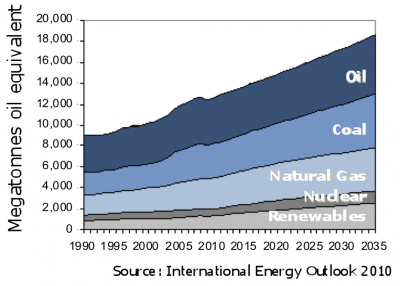KANANASKIS — Ed Whittingham, executive director of the Pembina Institute, made the following comments in response to the communiqué and action plan on developing a national energy framework released at the conclusion of the Energy and Mines Ministers' Conference in Kananaskis, Alberta:
"Canada's governments need to work together on an energy vision for this country, and ministers at the Kananaskis meeting have agreed to take that step. Today's communiqué affirmed that energy efficiency and innovation are two key areas for greater collaboration between governments.
"While the ministers expressed interest in reducing greenhouse gas emissions from energy production, their decision to call Canada's oilsands a 'sustainable' source of energy for the world raises serious questions about that goal.
"Non-renewable, high-carbon sources of energy are by their very nature unsustainable. Canada needs to plan for a transition away from depending on exports of such sources, like the oilsands.
"A national energy framework needs to seize the economic opportunities offered by clean energy and achieve Canada's climate targets. Unfortunately, the documents released today failed to make either addressing climate change or supporting renewable energy a priority.
"Before their next meeting, Canada's energy ministers need to outline a national energy framework built on meaningful dialogue with citizens. An effective framework must also include a price on greenhouse gas pollution as a central feature."
-30-
Contact:
[email:juliak] (English / français)
Media Manager, Pembina Institute
Cell: 613-265-5579
Resources:
The Pembina Institute's discussion document on guidelines for designing a successful energy strategy is available online.
The Institute is one of more than 150 signatories to the Tides Canada discussion paper A new energy vision for Canada.
In its recent report to Alberta premier Ed Stelmach, a blue ribbon panel recommended that the province should plan for a transition away from export dependency on the oilsands, given increasing concern over their environmental impact.
Background:
The graph below appears on page 1 of the background document entitled "Canada as a Global Energy Leader: Toward Greater Pan-Canadian Collaboration". It corresponds to the International Energy Agency's "Current Policies Scenario," which "takes into consideration only those policies that had been formally adopted by mid-2010." According to the IEA, emissions in this scenario reach "a long-term level consistent with a temperature rise in excess of 6°C" (see World Energy Outlook 2010, p. 383).
The ministers opted not to use the IEA's "450 Scenario" in which "government policies are assumed to be introduced that put the world on track for long-term stabilisation of the atmospheric concentration of greenhouse gases at 450 parts per million (ppm) of CO2-equivalent. This is the level that would give us a reasonable chance of limiting the increase in global average temperature to 2° Celsius — the goal set in the Copenhagen Accord." Canada is a supporter of the Copenhagen Accord (see World Energy Outlook 2010, p. 377).




